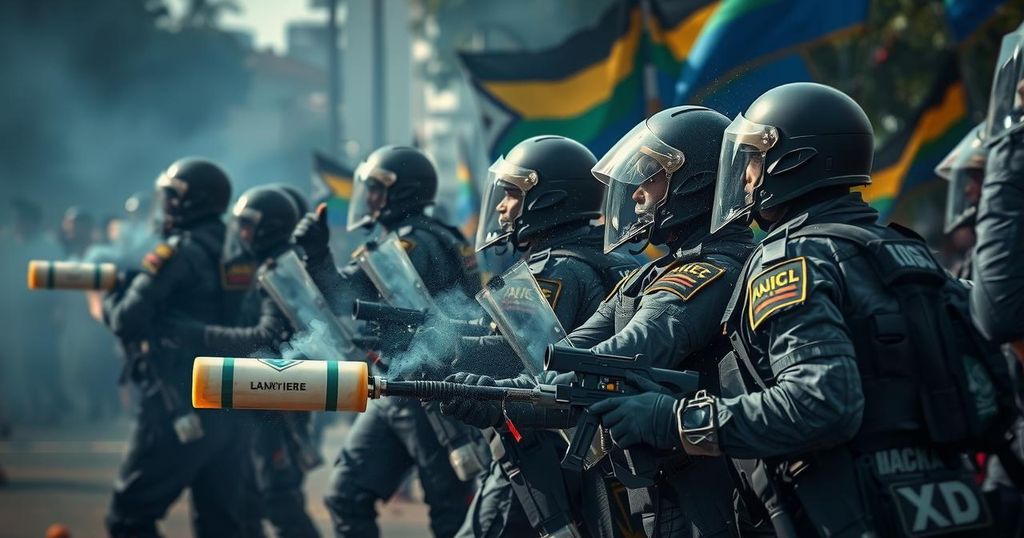Mozambique police deployed tear gas against protesters in Maputo denouncing the alleged electoral fraud following the October 9 elections, which resulted in a victory for the ruling Frelimo party. Opposition leader Venancio Mondlane claims the electoral process was rigged and encourages ongoing protests. The unrest has raised concerns over excessive police force, resulting in multiple fatalities. Security measures and internet restrictions have heightened tensions, drawing international attention and warnings from human rights organizations.
In Mozambique, police have utilized tear gas in the capital Maputo to disperse demonstrators protesting alleged electoral fraud following the recent elections held on October 9, which saw the Frelimo party securing victory and extending its nearly five-decade-long rule. This protest, noted as the largest against the ruling party, involved predominantly young men who erected barricades with burning tires, expressing support for opposition leader Venancio Mondlane, who claims the election was improperly conducted and has called for ongoing demonstrations. The protest occurred amid a backdrop of political tension, where Mondlane asserted he was the legitimate winner of the elections. He described the situation as a “crucial moment” for Mozambique, emphasizing a burgeoning revolutionary spirit within the country. Recently relocated for his safety, Mondlane initially intended to partake in the march but ultimately refrained due to concerns over possible violence. Security forces had established a heavy presence throughout Maputo, with warnings from the Mozambique Bar Association regarding potential bloodshed due to the dangerous nature of confrontations between police and protesters. Reports from Al Jazeera corroborate the aggressive tactics employed by law enforcement, noting the use of both tear gas and live ammunition against demonstrators, with Amnesty International documenting at least 20 fatalities since the election. In light of the escalating violence, Defence Minister Cristovao Chume cautioned of potential army intervention to maintain state stability. With the upcoming transition of presidential power before the end of President Filipe Nyusi’s term, political dynamics remain tense, especially as opposition figures seek legal recourse for electoral discrepancies. The authorities have also imposed restrictions on internet access to limit public dissent. Furthermore, the United Nations has cautioned against excessive use of force by police and called for adherence to human rights standards in handling protests. The Southern African Development Community has announced plans for an extraordinary summit to address the situation in Mozambique, while South Africa has acted in response by closing its border with Mozambique until further notice.
The situation in Mozambique follows the elections held on October 9, where the Frelimo party was declared the victor in what has been termed a contentious electoral process. This longstanding political party has maintained power since the country achieved independence nearly 50 years ago. Allegations of electoral rigging have ignited protests, primarily led by youth segments of society, which represent a significant portion of the population disillusioned by the political status quo. As civil unrest mounts, international organizations and neighboring states are observing the developments closely, emphasizing the potential for regional implications.
In conclusion, the protests in Mozambique signify a broader struggle for political reform and accountability, as public dissatisfaction with the electoral process has prompted widespread demonstrations against the ruling Frelimo party. With increasing violence and government crackdowns on dissent, the situation remains precarious. The stance of international bodies and neighboring countries may play a crucial role in shaping Mozambique’s political landscape in the coming months.
Original Source: www.aljazeera.com






